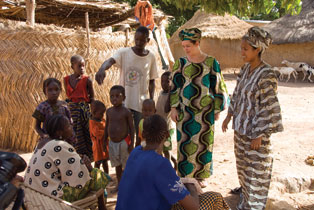
Key Travel church partner imb (International Mission Board) runs a sophisticated risk management service.
Here’s a look inside.
As an entity of the Southern Baptist Convention, imb (International Mission Board) has nearly 16 million members and a constant through-flow of travellers on global missions. As such, imb takes exemplary measures to ensure travellers’ safety.
 A theology of risk
A theology of risk
Every congregation needs to define its own theology of risk. Members and clergy need to agree on what physical and other risks the church and its members are willing to take. In a word, they need to establish their tolerance to risk.
First, this is an excellent spiritual exercise. (What does the Bible say about risk?) Second, it’s a practical way for a church to formally define the levels of risk congregants can expect while on the mission field. Essentially, it defines what is and isn’t worth sacrificing for.
Contingency planning crisis policy
Contingencies come in all shapes, sizes and degrees of severity. And, they nearly always involve not only those travelling, but also those back home.
Contingency planning begins with crisis policies that can mitigate concerns and define a proactive crisis-response mechanism for the congregation. As an example of mitigating risk via crisis policy, the church should have a policy requiring all mission participants to carry international travel insurance. That way, if something happens while they’re abroad (illness or injury, for example), they can be assured of necessary treatment and safe transport back home.
Crisis policies can also define who would serve on a crisis team in the event of an ongoing issue — especially one that involves the media. Who will speak on behalf of the church? Who will handle member care? Who will update the church website with pertinent information?
While policy plans can always be changed during a crisis, an organization does not want to be defining policy in the midst of one.
Pre-planning for safety
Doing the homework on a travel destination is critical. Preparing to travel from point A to point B within that location can be just as important.
To this end, churches should provide mission team members with a basic safety orientation — how to lower their profile while in public and what to wear/carry so as not to stick out, to name a few.
It’s also helpful to leverage the help of individuals in your church who have practical experience in international travel, safety and security, or even law enforcement. It might also be a good idea to set up a mock passport control/customs check for mission participants prior to departure. Training like this helps them learn what to say (or not to say) when interacting with local immigration officers. This kind of “drill” is more helpful than you might think.
The more pre-planning, training and rehearsing your church can do prior to its mission team’s travel, the better off everyone involved will be.
Scott Brawner is director of risk management for International Mission Board, SBC. www.going.imb.org


